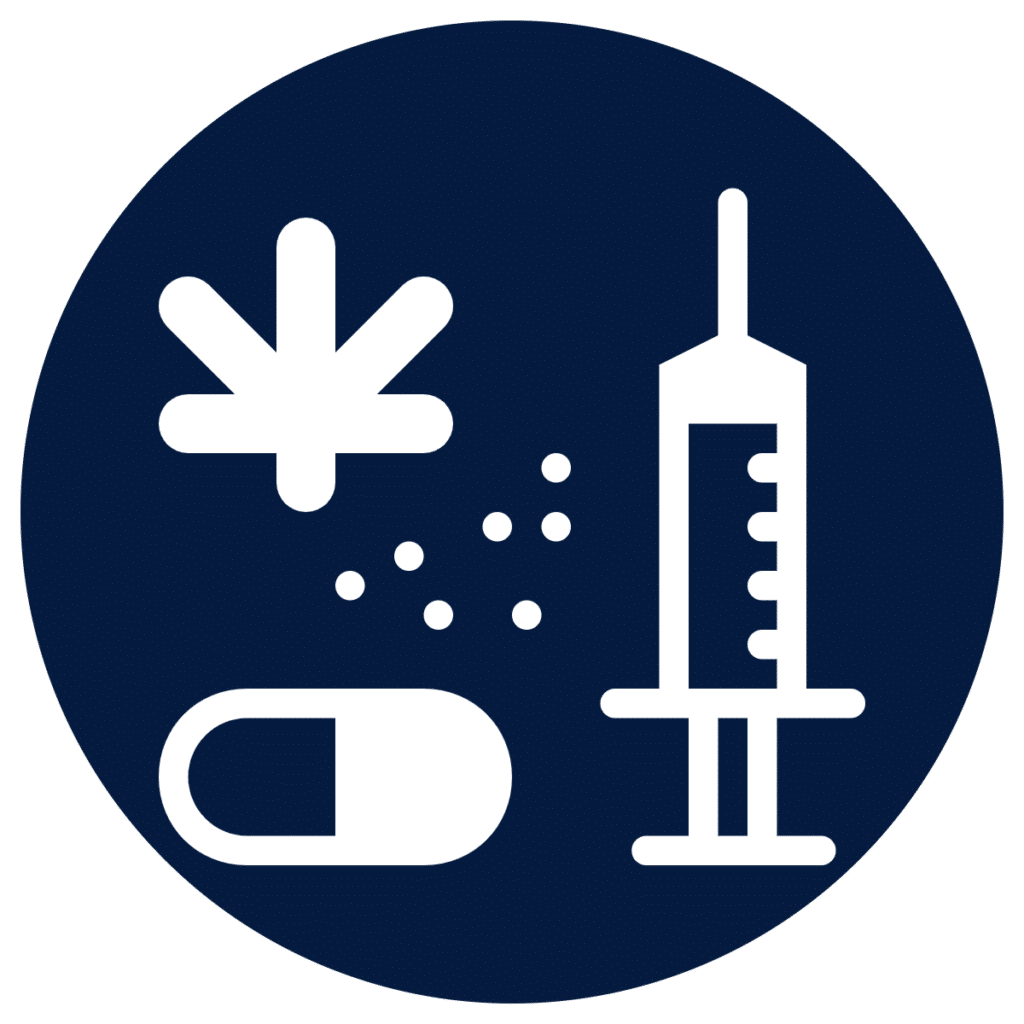If you are facing human sex trafficking charges, you will need an experienced criminal defense lawyer who is familiar with the complexities of these cases, is comfortable with the high stakes that come with them, and knows how to defend them. Defending a human trafficking case can be challenging, depending on the strength of the government’s evidence, but you should not despair. If you have been accused of, are being investigated for, or have already been arrested for a human trafficking offense, contact the law offices of David Silldorf immediately. We can help you.
With over 40 years of combined experience, the Law Offices of David Silldorf have a proven track record of successfully defending against some of the most serious and complex criminal charges. David Silldorf has experience in defending the rights of individuals accused of human trafficking and an exceptional record of obtaining positive results for his clients. Don’t try to navigate through the complexities of the legal system alone. We would be happy to speak with you about your case at no upfront cost to you.
Human trafficking occurs when an individual or organization entices, transports, harbors, or seduces someone into coming into the United States or across state lines in order to benefit economically from that person. This often involves coercing the individual into working in sweatshops, agricultural industries, or commercial sexual exploitation.
A common example of Human Trafficking is when an illegal organization offers to help someone illegally immigrate into the United States. The migrant is then compelled to work off their debt; if they refuse, they could be met with violence or threats of being reported to immigration officials for arrest and deportation.
Human Trafficking crimes are investigated by U.S. Immigration and Customs Enforcement (ICE), the Department of Homeland Security, and the Federal Bureau of Investigation (FBI) along with multi-jurisdictional task forces that collaborate with state and local agencies. In today’s world, these agencies are especially interested in sex trafficking.
Sex trafficking typically involves transporting people across international or state borders to engage in sexual activity. Any type of human trafficking is illegal under federal law, but sex trafficking cases are considered especially serious. Federal law enforcement agencies and prosecutors will aggressively investigate and pursue arrests for alleged sex-trafficking crimes.
If you are facing human-trafficking charges, you must understand the allegations against you and which laws you are said to be in violation of. The following are just some of the federal laws that criminalize human trafficking under the United States Code:
The Trafficking Victims Protection Act (TVPA) is a federal statute designed to protect victims of human trafficking. It was created in 2000 and focuses on the prevention, protection, and prosecution of crimes related to “Trafficking in People” (TIP). This federal law provides severe penalties for anyone who is convicted of human trafficking.
The TVPA has been expanded various times through the Trafficking Victims Protection Reauthorization Acts (TVPRA) to target both sex trafficking and labor trafficking. The TPVA gives federal judges the authority to order a defendant to pay restitution to their victims and empowers victims to pursue civil damages against the defendant.
18 U.S.C. 1581 prohibits human trafficking and other crimes and describes legal punishments for anyone who is convicted of forcing another person to perform labor or sex acts. The penalties under the statute are severe, including life in prison if the human trafficking violation involves kidnapping (or attempted kidnapping), aggravated sexual abuse (or attempted aggravated sexual abuse), or death (or attempted murder).
18 U.S.C. 1583 has penalties of up to 20 years in prison for a defendant who is convicted of kidnapping another person for involuntary servitude or slavery. Violating this law could also result in life in prison if the crime includes attempted or actual kidnapping, aggravated sexual abuse, or death.
18 U.S.C. 1584 provides for penalties of up to 20 years in prison for a defendant who is convicted of holding someone or selling someone into involuntary servitude. If kidnapping, sexual abuse, serious bodily injury, or death occurs in the course of this action, the defendant could be sentenced to life in prison.
The Mann Act, also called the White-Slave-Traffic Act, was passed by Congress in 1910. This legislation made it a federal crime to transport people or to coerce people into traveling across state lines to engage in prostitution. Federal prosecutors still use the Mann Act to penalize people who engage in human trafficking. The broad verbiage of the law makes it effective in prosecuting online sex crimes including coercion, child pornography, child prostitution, or transportation of a minor with the intent to engage in prostitution or any criminal sexual activity.
If a person is found guilty of transporting a person across state lines for prostitution, or any other illegal sexual activity under the Mann Act, they can be sentenced to up to 10 years in prison. If the case involves coercing a victim to travel across state lines for illegal sexual activity, the defendant can be sentenced to up to 20 years in prison.
18 U.S.C. 1591 makes it a federal crime to recruit, entice, harbor, transport, or obtain a minor, knowing or in reckless disregard of the fact, that the minor would have to engage in a commercial sex act. Section 1591 does not require proof that the defendant or the victim crossed state or international lines. It similarly does not require proof that the defendant used force, threats of force, fraud, or coercion to make the minor engage in a commercial sex act.
The few preliminary requirements needed to charge a person under this statute can make this crime difficult to defend against. Depending on the age of the victim, and the manner in which the crime was committed, a person could be sentenced to life in prison for violating this law.
Because human trafficking is often an ongoing process rather than an isolated incident, when an individual is accused of human trafficking, they may also be charged with other crimes. These related offenses often include:
Being charged with any number of separate crimes (above or elsewhere) can make human trafficking cases even more complicated. You will need a competent criminal defense lawyer to evaluate and analyze your case to defend you appropriately against each and every charge and allegation. As discussed above, the stakes in these cases are exceptionally high, with a lot of potential prison exposure.
If you are facing human/sex trafficking charges, it is generally safe to assume that the government believes it has sufficient evidence to prove their case beyond a reasonable doubt at trial. This does not, however, always mean that they are right. A federal prosecutor has broad discretion to decide how to charge you, and what facts they will intend to rely on in proving that you were involved in forced labor, servitude, abduction and relocation of an individual to other areas, and forced sexual relations, to name a few common examples.
While most accused persons are individuals living in the United States, there are also instances in which a defendant may collude with foreign parties to perpetrate human trafficking crimes. Common forms of evidence collection come from eyes-on surveillance, surveillance videos (e.g., recording abduction), social media collection, wiretapped phones, toll or pen registry data collection, witness testimony–including cooperating witnesses or undercover informants–or DNA evidence connecting the accused to a crime.
Your legal team will need to carefully analyze the government’s evidence in order to determine how best to challenge their collection methods, refute charges, or charge bargain if the evidence is solid enough to obtain a conviction at trial. The possible maximum penalties under these various statutes are generally severe due to the common cruelty associated with human trafficking cases.
It goes without saying that the penalties can be even worse yet if a trafficking victim dies. Additional aggravating circumstances such as health, age, and the torment the victim went through can significantly increase the severity of outcomes in a given case. As a result, you will need a lawyer who is prepared to match the government’s case with equal intensity and is willing to fight aggressively for you, regardless of the outcomes.
Contact our team and we will immediately want to set up an initial consultation. An attorney will discuss your case details with you. Then we will gather the necessary information and documents from you.
Whether you are in custody, or out on bond, we will work tirelessly to work up your defense case and position you for success. We will interview witnesses, retain reputable experts, and begin our preparations for trial early as we explore all possible methods to protect you in your ongoing legal battle.
If you hire us, we will start working on your case immediately. Our lawyers treat every case as a unique matter, requiring individual attention and novel legal analysis and workup for the type of case that you are facing. Rest assured we will be there from the start to the very end. When and where appropriate, we will aggressively challenge the government’s evidence, file original motions, request evidentiary hearings, cross-examine witnesses, and present our own defense evidence.
But the fight never ends there. We are always willing to continue the fight, positioning our clients for success on appeal. It is not at all uncommon that jurors reach an incorrect result, or the trial judge made a fatal error somewhere along the way before the jury reaches its verdict. Know that if you hire us, we won’t quit, and we won’t leave you behind, even if the chips are down and the odds are stacked against you.
We are available 24/7 to start working on your case and will be available to you, day and night. Your case and personal information always remain private and confidential.
Federal cases can be complicated, and the consequences for human trafficking crimes are severe. If you have been arrested for a human trafficking crime in San Diego, David Silldorf is ready to fight for you.
David Silldorf has been designated by the Federal U.S. District Court for the Southern District of California as an experienced criminal practitioner qualified to handle appointments arising under the Criminal Justice Act.
The firm’s proximity to the international border has a strong influence on David Silldorf’s caseload. He regularly represents individuals charged with human trafficking, alien smuggling offenses, drug trafficking, and drug-related federal conspiracy cases, and other federal offenses involving firearms. Our results speak for themselves.

United States v. an Individual
[19-CR-02264-AJB]
Importing 18.84 kilograms (41.53 pounds) of methamphetamine from Mexico into the U.S.
DISMISSED

United States v. an individual
[possession of methamphetamine]
Client was arrested by Bureau of Land Management (BLM) officers for possession of methamphetamine.
NO CHARGES FILED

United States v. an individual
[19-MJ-03140-MSB]
Possession with intent to distribute a controlled substance (over 5 kilograms of cocaine) while onboard a vessel on the high seas.
DISMISSED